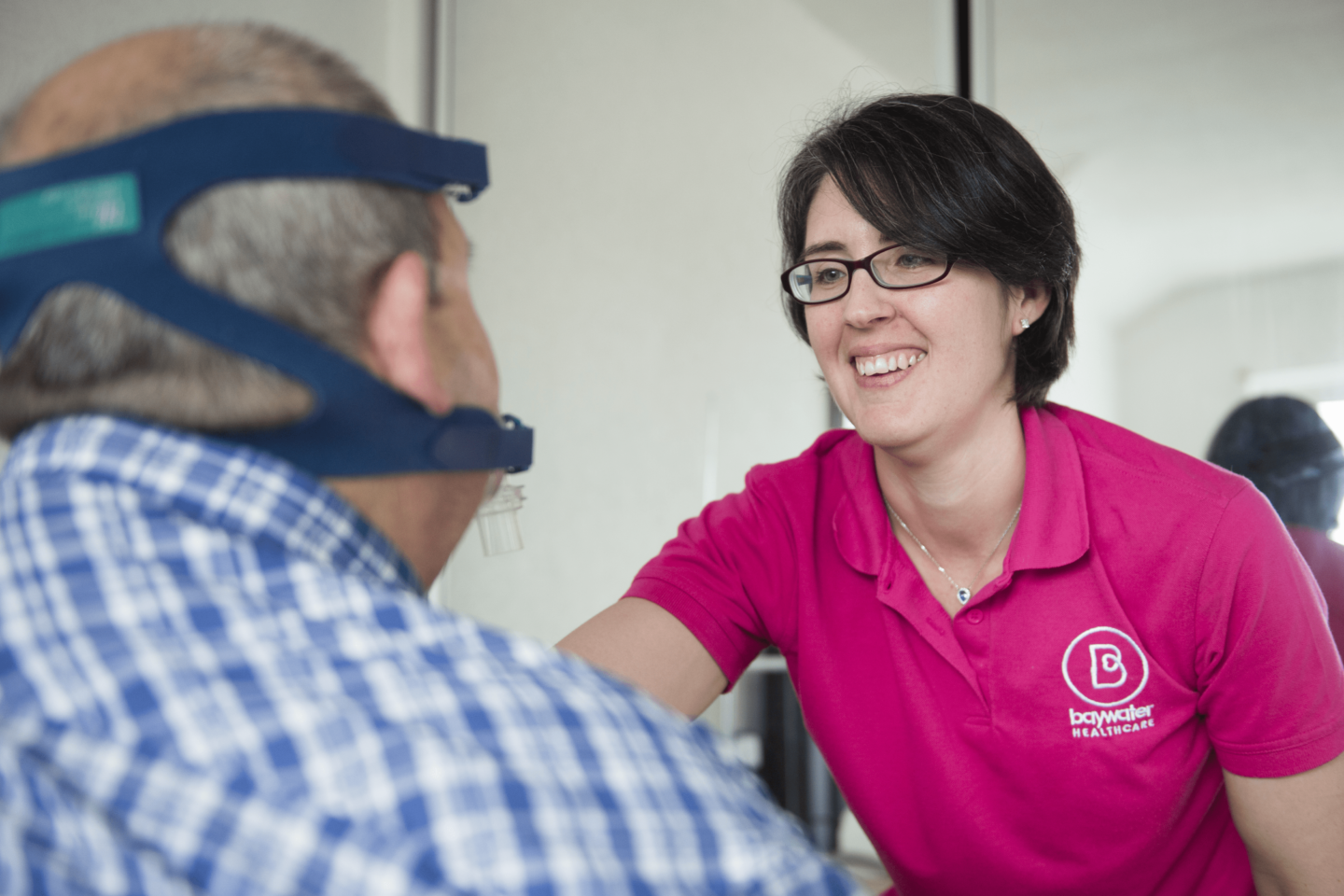Select Sleep Apnoea Service
What is Sleep Apnoea?
What happens during sleep apnoea?
When breathing stops (known as apnoea), the levels of oxygen in the blood begin to drop. After a few seconds, the lack of oxygen causes a reflex response. This forces open the airways, causing you to produce a loud snort, a series of gasping breaths and often loud snoring. Sometimes, during this period of ‘arousal’, there may also be kicking and flailing of the arms and legs.
You may be totally unaware of your symptoms and, unless you sleep alone, your sleep partner may also end up with a disturbed night’s sleep.
What causes the airway to collapse during sleep?
Several factors can cause the airway to collapse. For example:
- Extra tissue in the back of the throat, such as large tonsils or large uvula
- A decrease in the tone of the muscles holding the airway open
- A blocked nose
Visit https://www.cpap.co.uk/blSYMPTOMS
Occasional brief episodes of sleep apnoea are harmless and are quite common in a normal adult. People with Obstructive Sleep Apnoea (OSA) often snore loudly. From time to time, you may stop breathing and may snort or choke as well as snore. This interrupted breathing pattern interferes with restful sleep. It affects daytime alertness and makes it difficult to function well during the day.
You may experience hundreds of episodes each night; symptoms may include:
- Loud and irregular snoring
- Breathing pauses during sleep
- Choking during sleep
- Sleepiness when awake
- Headaches on waking
- Difficulty concentrating
- Depression and irritability
- Memory loss
If Obstructive Sleep Apnoea is left untreated, there can be long-term risks. For example, there is an increased risk of high blood pressure and stroke. Also, daytime tiredness can contribute to accidents.
The good news is that Obstructive Sleep Apnoea can be treated.
What to do if you think you have sleep apnoea?
Visit your GP and discuss your symptoms. Your GP may carry out some initial tests or refer you to a hospital consultant.
Diagnosis of sleep apnoea may be made on symptoms alone. Often, however, overnight sleep studies are needed to confirm the diagnosis and assess the severity of apnoea episodes.
The consultant may advise you to reduce your weight and limit alcohol intake before sleeping, as these can aggravate the symptoms of Obstructive Sleep Apnoea.


